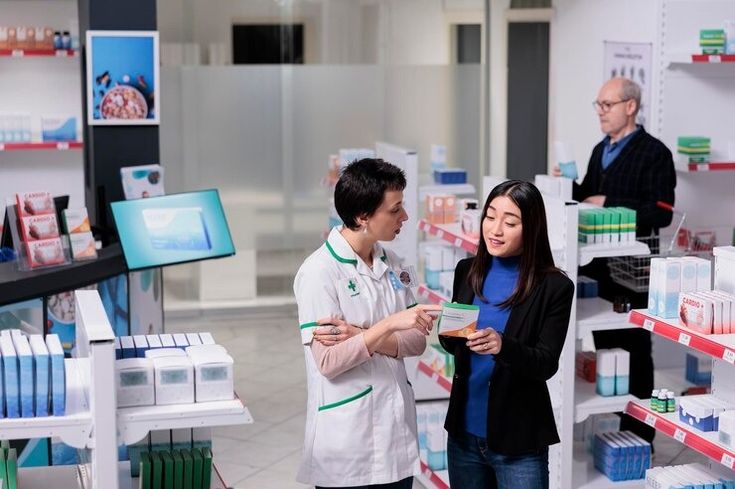Pharmacovigilance services play a crucial role in ensuring the safety and efficacy of pharmaceutical products worldwide. With the increasing complexity of drug development and regulatory requirements, the need for robust pharmacovigilance (PV) systems has never been more significant. This article explores the landscape of pharmacovigilance services in various key regions, including the USA, UK, Canada, Germany, and Singapore, highlighting their importance in safeguarding public health.
Understanding Pharmacovigilance Services
Pharmacovigilance services encompass the science and activities related to detecting, assessing, understanding, and preventing adverse effects or any other drug-related problems. These services are essential throughout the life cycle of a drug, from clinical trials to post-marketing surveillance. The primary goal is to ensure that the benefits of a drug outweigh its risks, thereby protecting patient safety.
Pharmacovigilance involves various activities, such as adverse event reporting, signal detection, risk management, and safety data analysis. With advancements in technology and data analytics, pharmacovigilance services have evolved to become more proactive and efficient in identifying potential safety concerns related to medicinal products.
Pharmacovigilance Services in the USA
The United States is one of the largest markets for pharmaceutical products, and thus, pharmacovigilance services in the USA are critical to maintaining drug safety. The U.S. Food and Drug Administration (FDA) plays a central role in overseeing pharmacovigilance activities. The FDA requires pharmaceutical companies to report adverse events and maintain comprehensive safety databases to monitor drug safety effectively.
Pharmacovigilance services in the USA involve rigorous processes, including post-marketing surveillance, risk evaluation, and mitigation strategies (REMS), and periodic safety update reports (PSURs). These services ensure that any potential safety issues are identified promptly, and necessary actions are taken to mitigate risks to patients. Additionally, the FDA collaborates with international regulatory agencies to share safety information, reflecting the global nature of pharmacovigilance efforts.
Pharmacovigilance Services in the UK
In the UK, the Medicines and Healthcare products Regulatory Agency (MHRA) oversees pharmacovigilance activities. Pharmacovigilance services in the UK have been shaped by a robust regulatory framework that emphasizes patient safety and transparency. The MHRA requires pharmaceutical companies to establish pharmacovigilance systems, ensuring timely reporting and evaluation of adverse events.
Pharmacovigilance services in the UK focus on continuous monitoring of drug safety through spontaneous reporting systems, electronic health records, and real-world evidence. The MHRA also encourages healthcare professionals and patients to report adverse events, fostering a culture of safety awareness. With Brexit, the UK has strengthened its pharmacovigilance regulations to maintain alignment with global standards while ensuring independent oversight.
Pharmacovigilance Services in Canada
Canada’s pharmacovigilance system is governed by Health Canada, which mandates stringent reporting requirements for adverse drug reactions and incidents. Pharmacovigilance services in Canada are characterized by their comprehensive approach to safety monitoring, involving both pre- and post-market surveillance.
Health Canada collaborates closely with healthcare professionals, patients, and pharmaceutical companies to enhance the reporting of adverse events. Pharmacovigilance services in Canada also emphasize signal detection and risk assessment to identify potential safety issues early in a product’s life cycle. Moreover, Health Canada works with international counterparts to exchange safety information and promote global pharmacovigilance harmonization.
Pharmacovigilance Services in Germany
Germany is a key player in the European pharmaceutical market, and its pharmacovigilance services are governed by the Federal Institute for Drugs and Medical Devices (BfArM) and the Paul-Ehrlich-Institut (PEI) for biologicals and vaccines. Pharmacovigilance services in Germany are highly integrated into the European Union’s (EU) regulatory framework, ensuring consistent safety standards across member states.
Pharmacovigilance services in Germany focus on the collection, analysis, and evaluation of adverse drug reactions (ADRs). The BfArM and PEI collaborate with healthcare professionals, patients, and pharmaceutical companies to maintain a robust safety monitoring system. Furthermore, Germany is a strong advocate of electronic reporting systems and data analytics to enhance pharmacovigilance efficiency and effectiveness.
Pharmacovigilance Services in Singapore
Singapore, a growing hub for pharmaceutical and biotechnology industries in Asia, has developed a strong pharmacovigilance framework. The Health Sciences Authority (HSA) oversees pharmacovigilance services in Singapore, ensuring that all pharmaceutical products are closely monitored for safety and efficacy.
Pharmacovigilance services in Singapore are characterized by a proactive approach to safety monitoring, leveraging digital technologies and real-world evidence. The HSA collaborates with healthcare professionals, industry stakeholders, and international regulatory agencies to maintain a high standard of drug safety. Pharmacovigilance services in Singapore include routine safety assessments, risk management plans, and public awareness campaigns to promote adverse event reporting.
The Importance of Pharmacovigilance Services Worldwide
Pharmacovigilance services are vital in preventing and mitigating adverse drug reactions, ensuring that pharmaceutical products are safe for public use. As the global pharmaceutical landscape continues to evolve, the demand for robust pharmacovigilance systems is increasing. Countries like the USA, UK, Canada, Germany, and Singapore have developed comprehensive pharmacovigilance frameworks to safeguard patient safety and maintain public trust in medicinal products.
These countries also collaborate through various international initiatives, such as the International Council for Harmonisation of Technical Requirements for Pharmaceuticals for Human Use (ICH) and the World Health Organization (WHO) Programme for International Drug Monitoring. Such collaborations help to promote consistency in pharmacovigilance practices and enhance global drug safety.
Conclusion
Pharmacovigilance services are a critical component of the healthcare system, ensuring the safe and effective use of pharmaceutical products. The USA, UK, Canada, Germany, and Singapore have established strong pharmacovigilance frameworks that reflect their commitment to patient safety and public health. As pharmacovigilance continues to evolve with technological advancements and increased global collaboration, these countries remain at the forefront of ensuring drug safety and efficacy worldwide.




